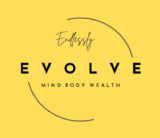How Your Mindset Shapes Your Reality: Expert Insights
Exploring the power of mindset can open doors to transforming your reality. Your mindset directly influences how you perceive and interact with the world around you. This means the thoughts you nurture can shape your experiences, affecting everything from personal well-being to professional success.

When you consciously choose to adjust your mindset, you hold the power to redefine your reality. Positive perceptions can alter not only how you feel but also the opportunities you recognize and seize. By understanding this transformative ability, you can navigate life’s challenges with a refreshed and proactive perspective.
Implementing a new way of thinking requires practice and commitment. By exploring expert insights and practical strategies, you can embark on a journey towards a more fulfilling reality. Engaging with these concepts allows you to harness the potential of your mind, effectively changing how you experience the world.
Understanding Mindset and Its Impact on Reality

Your mindset profoundly influences how you perceive the world and seize opportunities. By examining fixed and growth mindsets, you can gain insights into how beliefs shape your experiences and interactions. Recognizing the role of mindset in perception and opportunity allows for the use of cognitive interventions to foster positive changes in your life.
Defining Mindset: Fixed vs. Growth Perspectives
Mindset forms the foundation of how you approach challenges and growth. A fixed mindset suggests abilities and intelligence are static, leading to an avoidance of challenges and fear of failure. In contrast, a growth mindset embraces challenges, viewing abilities as developable through effort and persistence.
The distinction shapes your personal and professional endeavors. A fixed mindset limits potential by keeping you within your comfort zone, whereas a growth mindset encourages exploration and learning. By adopting a growth perspective, you can increase resilience and adaptability, fostering environments where creativity and innovation thrive.
The Power of Mind: Shaping Perceptions and Opportunities
Your mindset influences how you perceive reality and the opportunities you encounter. Beliefs about your capabilities can affect how you interpret success and setbacks. For instance, viewing failure as a learning opportunity aligns with a growth mindset, enhancing prospects for future success.
This belief system directly impacts your interactions and openness to experiences. With a growth mindset, you become more receptive to new challenges and experiences, facilitating continuous personal development. This underscores why mindset is pivotal in shaping not just perceptions, but decisions and the paths you pursue.
Mindset Interventions and Cognitive Therapy Essentials
Cognitive interventions can play a crucial role in shifting mindsets towards growth, reshaping how you experience reality. Cognitive therapy aims to identify and change negative thought patterns, making it instrumental in developing a growth-oriented mindset. Techniques such as reframing and positive affirmations help modify limiting beliefs.
Incorporating these strategies into daily life supports mindset shifts from fixed to growth. Therapies and interventions provide tools to challenge ineffective thought patterns, promoting resilience and a more constructive outlook on life’s challenges. Consistent application is essential for long-term change, leading to enhanced personal and professional growth.
Incorporating Mindset Changes for Personal Development

Adopting mindset changes can influence your reality by opening up opportunities and enhancing personal growth. Implementing practical strategies can help cultivate a positive mindset, overcome limiting beliefs, and develop a growth-oriented attitude. This shift encourages resilience.
Strategies for Cultivating a Positive Mindset
Cultivating a positive mindset involves intentionally focusing on optimism and recognizing opportunities in difficult situations. Start by surrounding yourself with positive influences such as supportive friends and mentors who boost your motivation.
Practicing gratitude daily can also help. List things you are thankful for, shifting attention to what you have rather than what you lack. Affirmations can reinforce positive thought patterns, while mindfulness practices like meditation encourage present moment awareness, helping refine your emotional response to challenges.
Overcoming Limiting Beliefs to Foster Resilience
Limiting beliefs are mental barriers that hinder growth. Identifying these beliefs is the first step in overcoming them. You can achieve this by reflecting on recurring negative thoughts and questioning their validity.
Once identified, challenge these beliefs by seeking evidence that contradicts them, replacing negative assumptions with constructive perspectives. Interrupting negative self-talk with positive affirmations can dismantle these barriers. Building resilience involves acknowledging setbacks as learning opportunities, allowing you to adapt and persevere.
Practical Steps Toward a Growth-Oriented Attitude
Developing a growth-oriented attitude requires embracing challenges and viewing failures as opportunities for learning. Start by setting realistic goals that encourage skill development and personal growth. Break tasks into manageable steps to boost motivation and maintain progress.
Engage in continuous learning by exploring new topics or enhancing current skills. Adopting a curious mindset drives personal development and enriches experiences. Reflect on your achievements and reassess your goals regularly to align with evolving aspirations. Embracing this mindset fosters a capacity for lifelong learning and adaptability.
Improving Health and Well-Being Through Mindset

Your mindset can significantly influence your health and overall well-being. By adjusting how you think, it’s possible to manage stress, reduce chronic pain, and even alter how conditions are perceived and experienced.
Connecting Health and Behavior: The Placebo Effect
The placebo effect demonstrates the power of the mind in healing. When individuals believe they’re receiving treatment, their bodies can initiate real physiological changes. This phenomenon underscores the connection between health and behavior, showing that belief can influence outcomes. The implications for well-being are significant, as harnessing this can lead to improved health outcomes without direct medical intervention. By understanding this link, you can potentially access greater control over your body’s responses, contributing to healthier living.
The documentary SOURCE It’s Within You unveils groundbreaking discoveries about the profound impact of meditation on our mind and body. This powerful film showcases stories of transformation and healing testimonials using the power of mind and meditation based on the work of Dr. Joe Dispenza. Discover more about the mind’s extraordinary potential to influence the body.
Watch SOURCE It’s within You

Mindset Techniques for Stress Reduction and Pain Management
Managing stress and chronic pain often depends on effective mental strategies. Techniques such as mindfulness and cognitive restructuring can lead to reduced stress levels and better pain management. Mindfulness encourages you to be present, which can help in alleviating stress. Cognitive restructuring involves changing negative thought patterns, which can improve stress responses and pain perception. These methods help in fostering mental resilience, essential for maintaining overall well-being and health. Adopting these mindset approaches may offer you valuable tools for enhancing life quality.
Positive Thinking’s Role in Chronic Conditions
Positive thinking has a meaningful impact on managing chronic conditions. It does not cure these issues but can improve quality of life by reducing perceived pain and stress. With conditions like arthritis or IBS, a positive mindset can affect how symptoms are handled. By maintaining a positive outlook, individuals might experience reduced pain perception and improved coping mechanisms. This shift in mindset can aid in handling chronic health challenges more efficiently, thus supporting overall well-being. Adopting a positive mindset is a proactive step in managing chronic health issues.
Social Context and Its Interaction with Personal Mindset

Social context plays a pivotal role in shaping your perception and personal mindset. It influences how you react to different environments and impacts both individual development and societal dynamics.
The Influence of Education and Social Inequalities
Education significantly affects your mindset by providing knowledge and shaping perceptions. It opens up opportunities for critical thinking and broadens your world view. Education can also highlight social inequalities, illustrating disparities in access to resources and opportunities. These disparities influence mindset by either reinforcing feelings of limitations or motivating a drive toward overcoming barriers. Understanding these dynamics can help you recognize how educational backgrounds impact both personal growth and the broader social context, encouraging awareness of the underlying inequalities around you.
Fostering a Sense of Belonging Through Positive Mindset
A positive mindset can enhance your sense of belonging within any social context. Encouraging inclusivity and acceptance within diverse groups nurtures a supportive environment. When you feel accepted, your self-esteem improves, contributing to a stronger community. Building this sense of belonging is crucial in diverse settings, such as workplaces and schools, where collaboration is encouraged. By promoting positivity, you contribute to a culture that values every individual’s contributions, which not only benefits personal well-being but also strengthens the entire group. This mindset fosters resilience, adaptability, and empathy.
How Social Context Shapes and Reinforces Our Mindsets
Social contexts are influential in forming and reinforcing your mindset through daily interactions and societal norms. Family, peers, and community embed certain beliefs and values that shape your perceptions. These social constructs then guide behavior and understanding of various situations. By actively engaging with diverse groups and experiences, you can challenge pre-existing beliefs and develop a more adaptable mindset. Understanding this interaction empowers you to question stereotypes and societal expectations, broadening your perspective. Fostering awareness of these influences helps you better navigate social landscapes, encouraging growth and resilience amidst change.
Related Articles:

